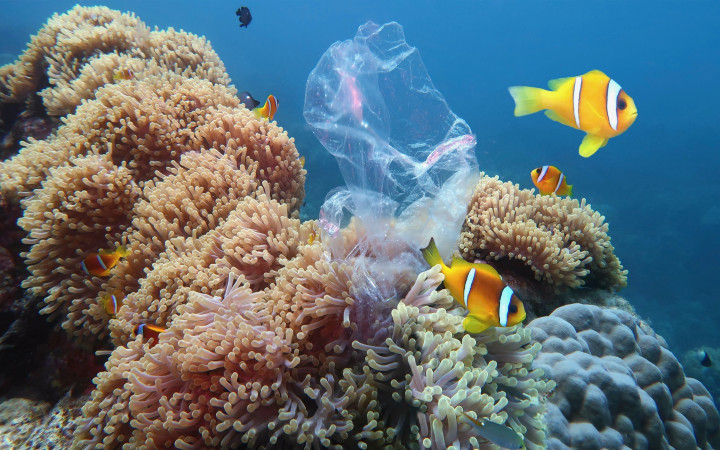Today’s Wonder of the Day was inspired by tajveer. tajveer Wonders, “why don't plastic decompose why does it take that long” Thanks for WONDERing with us, tajveer!
Do you enjoy playing sports? Whether it's kicking a soccer ball, spiking a volleyball over the net, throwing a football, or shooting a basketball, sports teach kids important lessons about teamwork.
Sports also help you to get good exercise and improve your physical conditioning. After a long practice or a hard-fought game, your muscles can feel tired. It's important to refuel your body with healthy food, plenty of rest, and replenishing liquids.
To quench a powerful thirst, there's nothing quite like guzzling down a refreshing bottle of water or a sports drink. But when you're finished, what do you do with the plastic bottle?
Do you toss it in the trash? Or do you look for a proper recycling container? Does it matter? Environmental experts would tell you that it absolutely does matter.
Why? Unlike organic materials, like food and paper products, petroleum-based plastics don't decompose quickly. Many sources estimate it can take 500-1,000 years for plastic to decompose in a landfill.
With the rate at which we use plastic bottles these days, the fact that they don't decompose quickly in landfills is an environmental concern. Recycling efforts certainly help, but many people still routinely throw plastic in the trash rather than recycling it.
The most common type of plastic used today is polyethylene, a petroleum-based polymer that doesn't biodegrade (microorganisms won't break it down). Instead, this type of plastic decomposes as a result of exposure to ultraviolet radiation from sunlight, a process called photodegradation.
There's some debate about how long this process takes. Some believe it takes hundreds of years. However, in 2009, Japanese researchers determined that plastic in warm ocean waters can decompose in as little as a year.
While that might sound promising, they noted that the plastic breaks down into substances that can be toxic to marine wildlife and humans. And a year is still longer than many other materials take to decompose.
For example, paper can decompose in a matter of weeks. Some foods take as long as a few months. The one thing that may be worse than plastic is glass, which can take millions of years to decompose — if it decomposes at all.
Of course, all of these statistics can't always be counted on in the real world. In many landfills, processes are used to continually bury waste in ways that reduce problems with odors. The result is that natural processes that might otherwise break down materials are interrupted or prevented altogether.
Scientists are continuing to work on the problem of plastic waste. For example, in recent years, researchers have developed two new types of biodegradable plastics: plant-based hydro-biodegradable plastic and petroleum-based oxo-biodegradable plastic. Some studies have shown these new biodegradable plastics might decompose in as little as two to three months.




